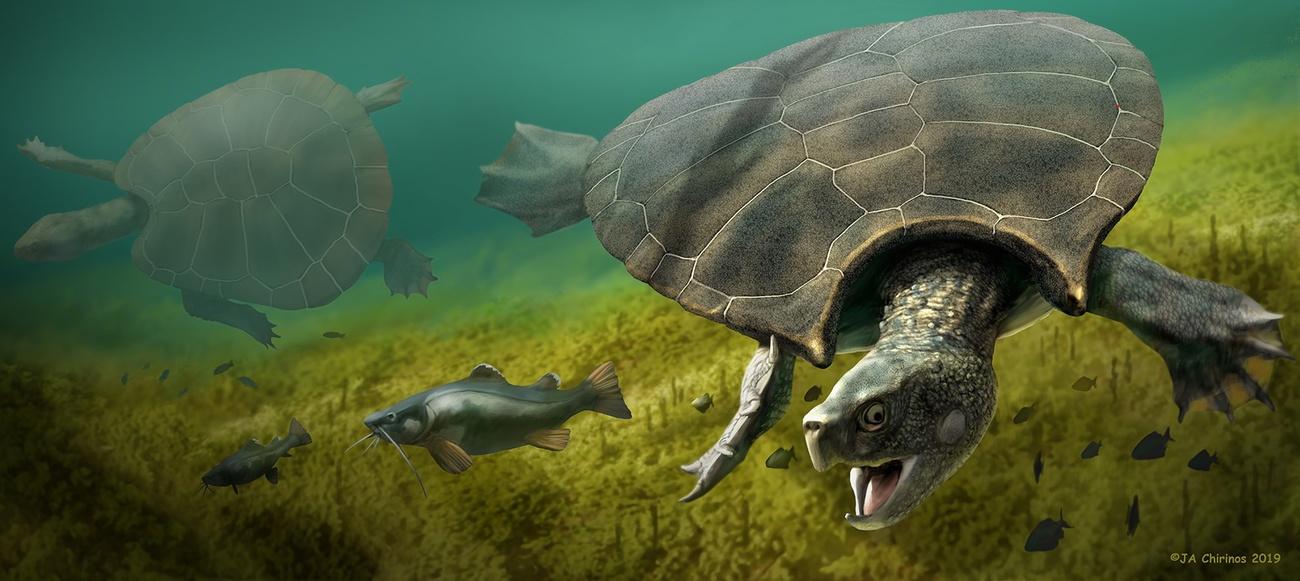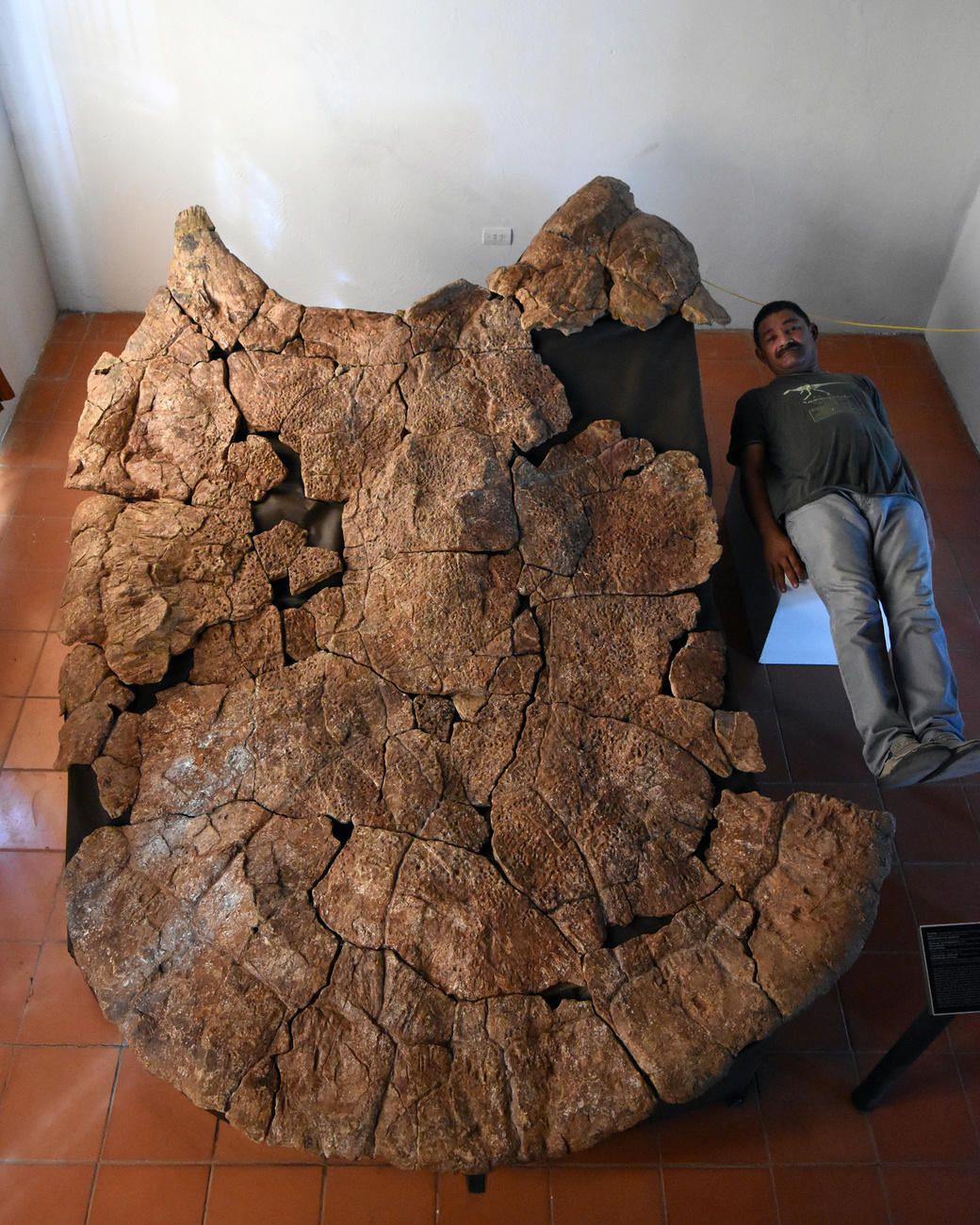
Researchers uncover fossil remains of world’s largest known turtle

Paleobiologists from the University of Zurich (UZH) have discovered the fossils of an extinct giant freshwater turtle that weighed a ton and had a shell nearly three metres long in northern South America.
The turtle’s impressive size may make it “one of the largest, if not the largest turtle that ever existed,” said lead researcher Marcelo Sánchez, director of the Paleontological Institute and Museum at UZH.

The reptile’s estimated body mass of 1,145 kg makes it almost 100 times heavier than its closest living relative, the Amazon river turtle, the university said in a statementExternal link on Wednesday.
The giant turtles, from the species named Stupendemys geographicus first described in the 1970s, roamed a humid, swampy swath of the continent that was also home to giant rodents, crocodiles and alligators between five and ten million years ago.
The UZH scientists, along with researchers from Colombia, Venezuela and Brazil, unearthed specimens in Venezuela and Colombia that revealed a distinct feature in the male turtles: they had horns on their shell.
The discoveries, including of jaws and other skeletal parts, have allowed the scientists to completely revise the species’ tree of life and expand the turtle’s habitat to a much wider geographic region than previously thought to cover the entire northern part of South America.

In compliance with the JTI standards
More: SWI swissinfo.ch certified by the Journalism Trust Initiative


























You can find an overview of ongoing debates with our journalists here . Please join us!
If you want to start a conversation about a topic raised in this article or want to report factual errors, email us at english@swissinfo.ch.